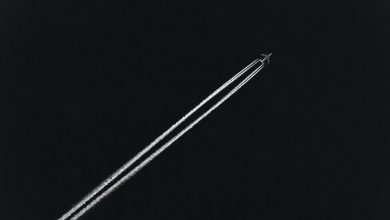Since last week, Scotland has become a pioneer in ensuring that women in the country no longer suffer from menstrual poverty. From now on, absorbents and tampons will be distributed to the population. The initiative is another important step for the nation, which since 2018 has been distributing menstrual products for free in schools, colleges and universities across the country.
Called the Period Products Law, the project enters into force after 2 years of its passing in the Scottish Parliament. The objective of the initiative is to ensure the eradication of menstrual poverty. The legislation will now entitle tampons, internal and external, to be made available in community centers, clubs and pharmacies.
The measure was celebrated on social media not only by activists of the cause, but by Monica Lennon, author of the project, who spent the last few months talking to her peers about its importance.
What is menstrual poverty?
(Source: Pexels)
Menstrual poverty is the situation in which people, due to low income, are not able to acquire or have access to adequate menstruation products. In Scotland, a 2018 survey of 2,000 people found that 25% of respondents had trouble buying menstrual products. In the same year, the country became the first to offer products of this kind to students.
Young Scot, the institution that had carried out the research, followed up with respondents after the measure and found that 84% of them stated that the initiative had a lot of impact on his life. The same research had identified that, in addition to menstrual poverty, the stigma surrounding menstruation created an embarrassment among girls when buying the products.
How will the Scottish government guarantee the products?
(Source: Pexels)
Federal law will require local governments to ensure free access to menstrual products. Each of the country’s 32 councils will have to decide on the practical arrangements to be implemented, but they cannot escape the obligation to make a variety of products available with “reasonable ease” and “reasonable dignity”, as the document points out.
Women will not have to fill in any documents, nor justify the reason or the amount they want. Since 2017, more than £27 million has been spent by the Scottish government to improve women’s quality of life, specifically on menstrual issues.
The PL for sanitary pads in Brazil
(Source: Pexels)
Recently, menstrual poverty became a topic in Brazil, after President Jair Bolsonaro (PL) vetoed the passage of PL 4,968/ 2019, which dealt with the free distribution of sanitary pads. At the time, Bolsonaro justified the veto by saying that Congress had not indicated the source of funding or compensatory measure.
The bill, authored by federal deputy Marília Arraes (PT-PE), was approved in September 2021. It would guarantee that 5.6 million women would receive sanitary pads, about 8 units per month, through the SUS Primary Health Care program and the National Penitentiary Fund. The estimated cost was BRL 84.5 million per year.
The veto was overturned on March 10 of this year with a vast majority. The text obliges the government to promote information campaigns and authorizes education managers to make the necessary expenses to comply with the law.








